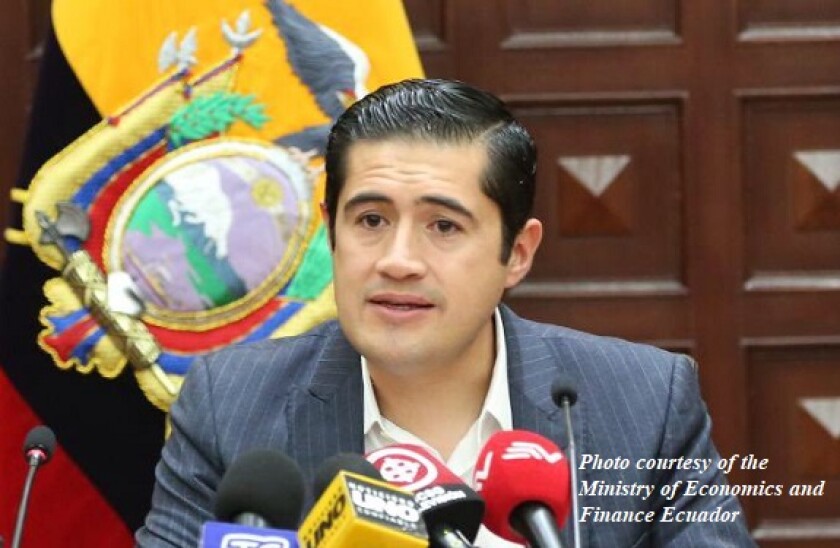Richard Martínez faced a painful decision in March.
With Covid-19 and plunging oil prices crippling a desperately tight public purse, Ecuador’s dollarised economy was running out of options as a $325m bond maturity loomed. Facing down extreme political pressure, Martínez paid up.
By avoiding default, Ecuador ensured the arrival of billions of dollars from multilaterals to keep the country going during the crisis. It also laid the way for a remarkably swift debt restructuring.
First, Ecuador received overwhelming bondholder approval to delay coupons, buying time for more comprehensive negotiations on its $17.4bn bond stock.
“It was a difficult and painful decision in the middle of a pandemic, but we paid, achieved the coupon waiver, and clinched multilateral funding,” Martínez tells GlobalMarkets. “We knew the importance of a positive relationship with the market.”
Jan Dehn, head of research at Ashmore, an important Ecuador bondholder, says that this administration had always been very credible.
“Rather than pretend it didn’t have a problem, Ecuador contacted bondholders to show them the numbers,” says Dehn. “The message was: we simply cannot pay, but can we reach an agreement that’s in our mutual interests?”
Bondholders told GlobalMarkets that Ecuador under Martínez was a tough but fair negotiator, and — in record time — Ecuador had a deal with a majority of bondholders that promises more than $10bn of payment relief in the next four years.
“Richard Martínez did not have many policy options when the Covid-19 shock hit, but Ecuador restructured its debt while preserving the goodwill of the markets,” says Alberto Ramos, head of Latin America economics at Goldman Sachs.
Moreover, Ecuador “maintained a very constructive relationship with the IMF, despite very difficult governability conditions”, says Ramos.
This allowed Ecuador to clinch an IMF deal that surpassed all expectations in August, with the Fund — unusually — granting exceptional access despite looming presidential elections.
Martínez managed all this under acute political pressure, but analysts say that whoever wins February’s vote will under no circumstances be able to claim that external debt payments are a burden. Ecuador has a good chance of pulling through.
“We achieved enough fiscal space for Ecuador to grow and continue with reforms,” says Martínez. “By not falling into default, we sent a message to society that a good payer can go places in life, and we believe we can break the cycle [of Ecuador being a serial defaulter].”
